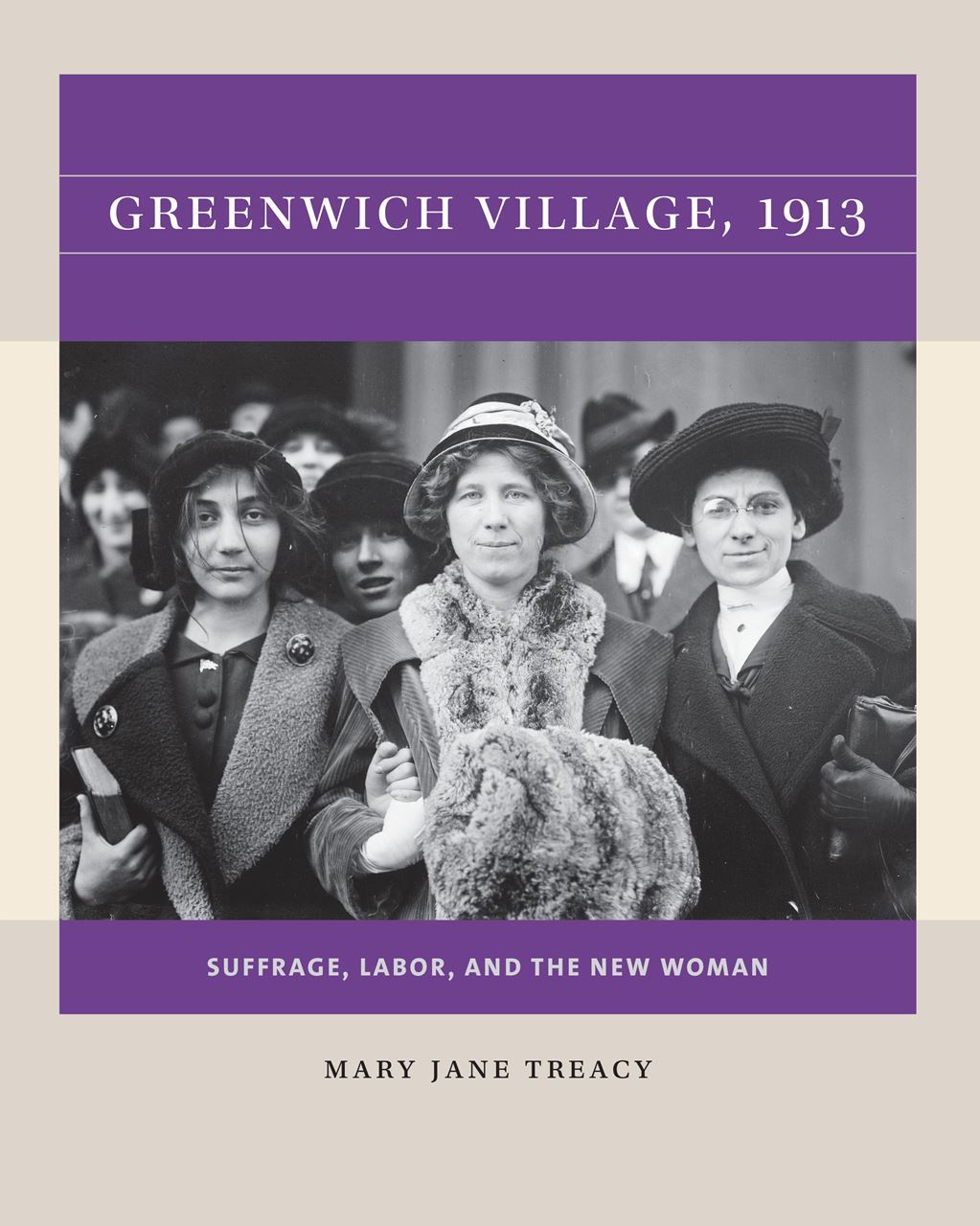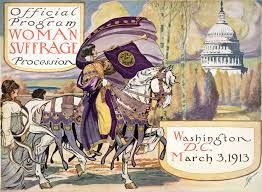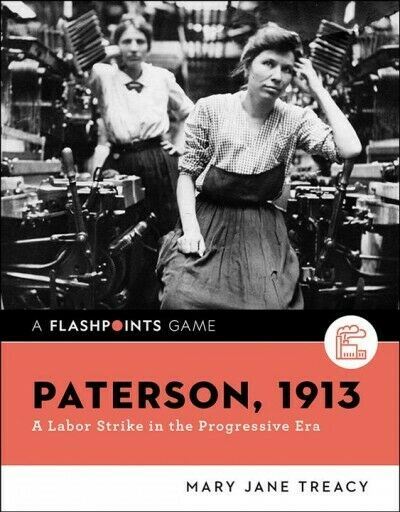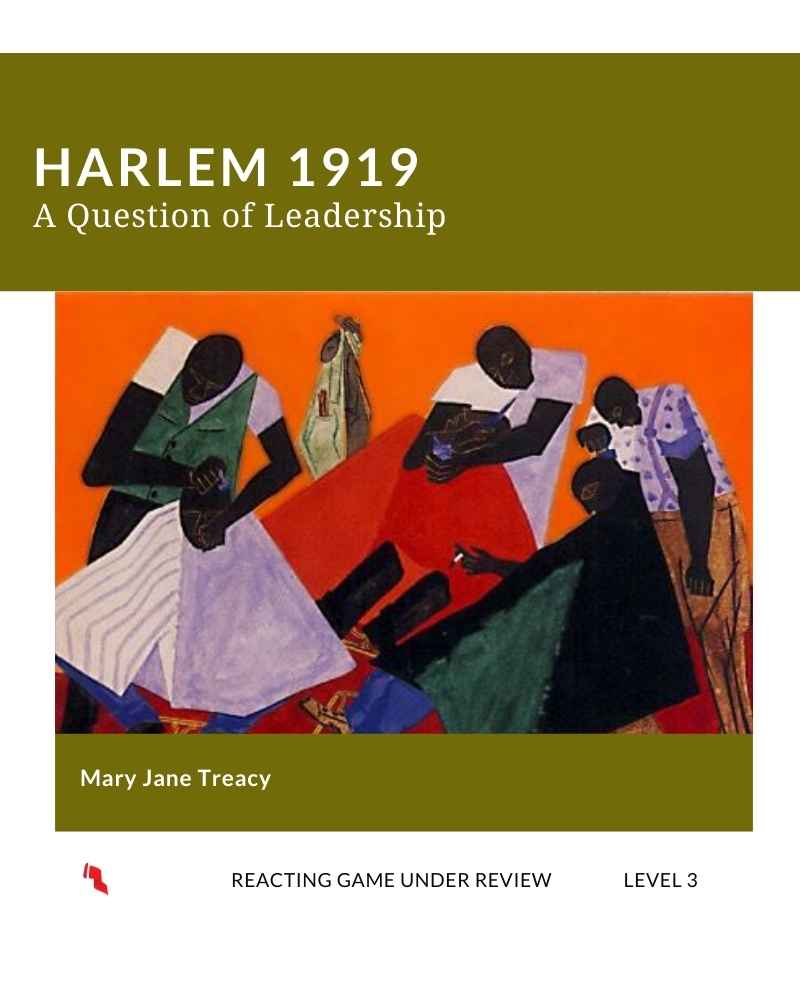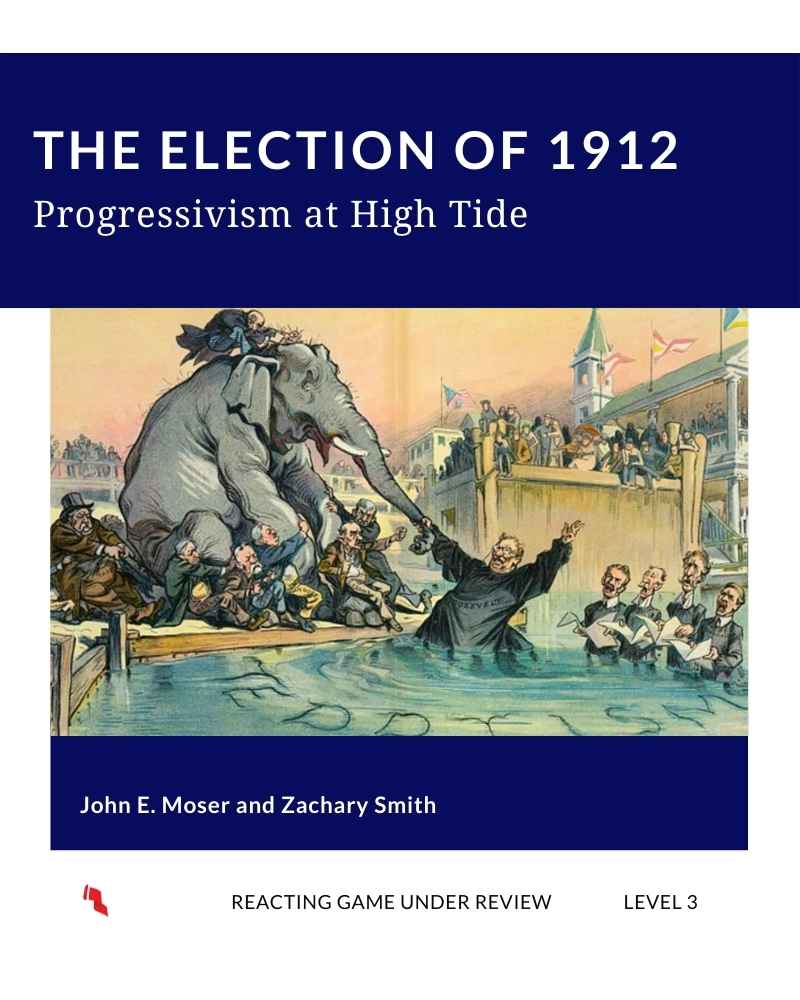 |
Greenwich Village has been revised. Please double check your materials to ensure they're suitable for use in the edition that you're using.
Note that this edition is being discontinued and its files will be inaccessible after June 1st, 2024.
To find the most up to date version of this game please visit the page for Greenwich Village 2nd Edition.
New Century, New America? This game takes students to the beginning of the modern era when urbanization, industrialization, and massive waves of immigration were transforming the U.S. way of life. As the game begins, suffragists are taking to the streets demanding a constitutional amendment for the vote. What, they ask, is women’s place in society? Are they to remain in the home or take an active role in the government of their communities and their nation? Labor has turned to the strike to demand living wages and better conditions; some are even proposing an industrial democracy where workers take charge of industries. Can corporate capitalism allow an economically just society or must it be overturned? African-Americans, suffering from the worst working conditions, disenfranchisement, and social segregation, debate how to support their community through education and protest, thereby challenging their continuing marginalization in both the South and the North. Members of all these groups converge in Greenwich Village to debate their views with the artists and bohemians who are in the process of remaking themselves into the new men and new women of the twentieth century. The game asks what social changes are most important as well as how one can or should realize these goals. |
Details
|
Using the Game
Class Size and Scalability Class Time
|
 GAME MATERIALS
GAME MATERIALS
Confirmed instructors who are not yet members can access basic instructor materials. Reacting Consortium members can access all downloadable materials (including expanded and updated materials) below. You will be asked to sign in before downloading.
Greenwich Village is currently being revised. Please double check your materials to ensure they're suitable for use in the edition that you're using.
Gamebook Students need a Gamebook, which includes directions, resources, and historical content. The Greenwich Village, 1913 Gamebook is published by UNC Press. Paperback ISBN: 978-1-4696-7069-0 Published July 2022 Available wherever books are sold. | Role Sheets and Add'l Materials Students also need a Role Sheet, which contains biographical information, role-specific resources or assignments, and their character's secret victory objectives. .zip file of .pdf files. .zip file of .pdf and .docx files. | Instructor's Manual The Instructor's Manual includes guidance for assigning roles, presenting historical context, assignments, activities and discussion topics, and more. .pdf file. .docx file. .zip file of .pdf files. |
Additional Resources
Resources for Introduction and/or Debrief
This includes digital Zoom backgrounds for your students. |
|
Forums for Greenwich Village
Please note that these forums are in a beta phase and that functionality may be limited. Game authors have discretion when deciding what community materials can be publicized on the Reacting website.
Mary Jane Treacy
Mary Jane Treacy is professor emerita of modern languages and literatures at Simmons College, where she was also director of the honors program. She has been involved with the Reacting to the Past pedagogy since 2005, when she played a minor spy in the court of Henry VIII and then set out to write Greenwich Village, 1913, for her course in the roots of feminism. She has taught Greenwich Village in both women’s and gender studies courses and first-year seminars. She is also author of a new Flashpoints game on a labor strike in Paterson, NJ, and a game on the aftermath of political violence in Argentina. A member of the Editorial Board, she has the privilege of reading and play-testing new games that take her to all eras and parts of the world. |
Members can contact game authors directly.
We invite instructors join our Facebook Faculty Lounge, where you'll find a wonderful community eager to help and answer questions. We also encourage you to submit your question for the forthcoming FAQ, and to check out our upcoming events.
|
|
|
